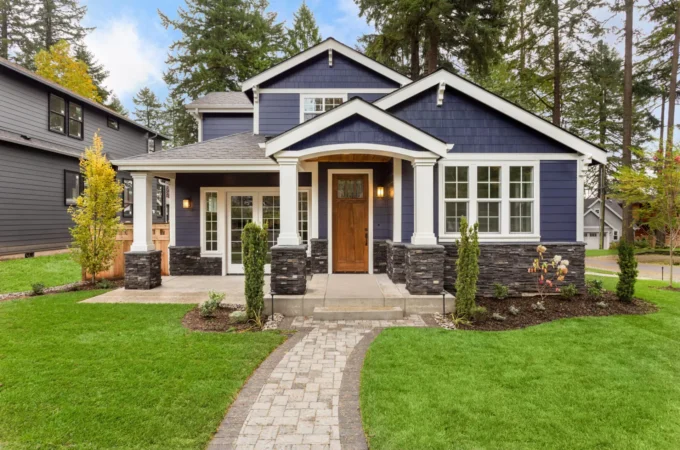
Expert Advice on Selecting the Right Academic Rental for Your Needs
Table of Contents
ToggleTable of Contents
- Understanding Your Requirements
- Prioritizing Location and Accessibility
- Budgeting Wisely
- Evaluating Amenities and Facilities
- Assessing Safety and Security
- Reviewing Lease Terms and Conditions
- Final Thoughts
Key Takeaways
- Define your specific academic and personal requirements before searching for rentals.
- Prioritize a location that is accessible, near your institution, with convenient amenities and public transportation.
- Prepare a thorough and realistic budget that accounts for all living and rental expenses.
- Assess property features to ensure they support your academic work and well-being.
- Investigate safety and security in both the neighborhood and the property itself.
- Review lease terms in detail, seeking flexibility and clarity to ensure a clear understanding before committing.
Understanding Your Requirements
Beginning your search for the perfect academic rental means undertaking a thoughtful and honest reflection on your unique needs, objectives, and lifestyle preferences. Start by defining the anticipated duration of your academic assignment or study—are you seeking accommodation for a short-term fellowship, an academic exchange semester, or a multi-year research appointment? Your timeline will significantly impact which rental arrangements are viable and whether you’ll need a flexible lease or a more permanent solution. Consider the nature of your work as well: researchers, writers, and postdoctoral fellows may need quiet, dedicated workspace, while students or visiting lecturers may prioritize communal amenities and proximity to campus.
Next, think about your daily routines and personal preferences. Are you comfortable sharing accommodations to foster connections and save costs, or do you need the solitude of a private apartment to concentrate? For those with families, schools, and child-friendly neighborhoods might be at the top of your list. One way to ease this process is to explore academic homes for rent—specialized listings designed with scholars in mind. These curated options are particularly valuable, as they reflect the academic community’s expectations—similar to how technical SEO services tailor strategies to meet specific site goals—helping you efficiently navigate the search for your ideal home away from home.
Location will play a pivotal role in shaping your experience. Reflect on your preferred environment: do you thrive amid the buzz of a lively university district, or would you be happier in a tranquil residential area with nature nearby? Proximity to campus, libraries, and key resources can be invaluable, as it mitigates stressful or time-consuming commutes and helps you maintain a work-life balance. Outlining these core requirements early will streamline your property search, shielding you from unnecessary distractions and allowing you to focus entirely on your academic and personal growth.
Prioritizing Location and Accessibility
Securing the right academic rental largely depends on choosing the best location. Being situated near your academic institution greatly enhances your ability to make the most of your study time and engage actively in both academic and social circles. Living within walking or biking distance can significantly cut down commute time and make it easier to take advantage of spontaneous opportunities—such as attending lectures, group study sessions, or campus-hosted events—that contribute to your academic and professional development. Immersing yourself in campus life can foster stronger research collaborations, deeper networking, and better access to vital academic resources, such as libraries, labs, and faculty mentorship. When assessing potential locations, consider the key characteristics of a “good” area, such as proximity to campus, quiet surroundings, walkability, and overall safety, all of which significantly impact your day-to-day academic experience.
However, convenience extends beyond proximity to your school. Opt for a location with reliable access to public transportation, especially if your work involves traveling to conferences, research sites, or affiliated institutions in nearby areas. A well-connected transit system ensures flexibility and helps avoid the high costs of taxis or ride-hailing services. Every day, practicality also counts—a rental near essential services, such as grocery stores, pharmacies, medical clinics, and mailing centers, can save time and reduce stress. Social and cultural access matters too—being close to student centers, museums, theaters, green spaces, and dining spots lets you engage more fully with the local environment, relax after academic work, and form meaningful connections. According to Investopedia, what defines a “good” location typically includes a balance of accessibility, nearby amenities, safety, and long-term comfort factors that strongly influence both your scholarly effectiveness and overall well-being. Whether you’re drawn to the dynamic atmosphere of a university hub or the quiet charm of a suburban area, aim for a setting that supports both your academic goals and personal lifestyle.
Budgeting Wisely
Developing a comprehensive, honest budget is fundamental to a successful academic relocation. Begin by quantifying not just the monthly rent, but every anticipated living expense—utilities, internet, groceries, transportation, laundry, insurance, and other daily essentials. It’s also vital to count irregular up-front costs, such as deposits, application or agency fees, and initial move-in expenses, including stocking up on supplies or purchasing missing essentials. Many academics rely on limited or fixed funding from scholarships, fellowships, university stipends, or research grants, making it crucial to strike a balance between flexibility and discipline to avoid unnecessary financial stress.
Evaluate each prospective property through both short- and long-term lenses. Sometimes, higher rents are justified by substantial savings elsewhere. For instance, an apartment closer to campus might eliminate your need for daily transit passes or may come with included amenities such as furnishings, utilities, or internet. Use a detailed spreadsheet or budgeting tool to record and compare the full cost breakdown of each property you consider. This not only clarifies options but strengthens your position when negotiating with landlords—especially if you’re willing to commit to an extended stay or can be flexible with your move-in date. Remember, negotiating isn’t just for experienced renters; academic mobility is highly valued, and landlords may offer discounts or additional perks to attract stable, responsible tenants.
Finally, consider the opportunity costs associated with cheaper or less convenient rentals. A lower monthly rent may come at the cost of lengthy commutes, reduced study time, or missed opportunities to engage in campus life.
Evaluating Amenities and Facilities
The amenities and facilities available in your academic rental can have a significant impact on your overall well-being, comfort, and productivity. Begin by identifying the non-negotiables for your academic work. High-speed, reliable internet is a must for almost any discipline today, as it enables you to attend virtual lectures, participate in video conferences, and access research databases or online collaboration tools without disruption. A dedicated study area—whether a separate office, desk nook, or well-lit workspace—is vital for long hours of reading, writing, or data analysis.
Modern conveniences—such as laundry machines, dishwashers, up-to-date kitchen appliances, adequate heating and air conditioning, and soundproofing—can help reduce stress and free up more of your energy for academic pursuits. Ergonomic furniture, such as a proper office chair and desk, can prevent long-term health problems, which is especially vital during periods of intense study or research. You should also consider amenities tailored to your lifestyle and needs: if you’re moving with a partner, children, or pets, features like extra bedrooms, outdoor space, or proximity to parks may prove invaluable.
Many academic rental listings are furnished and thoughtfully designed to meet the community’s unique requirements, reducing the time and effort needed to set up your new living environment. Should you opt for shared housing, clarify expectations about communal space, cleaning schedules, and rules about guests or overnight visitors to minimize the risk of misunderstandings with housemates. By prioritizing amenities that genuinely support your everyday academic life, you can create a home that both nurtures your professional growth and meets your personal well-being needs.
Assessing Safety and Security
Safety is a paramount concern, especially when relocating for academic purposes to an unfamiliar area, city, or country. Start by researching online resources regarding the safety and crime statistics of potential neighborhoods, and read testimonials or experiences from previous tenants on trusted academic rental platforms. If possible, visit your top choices in person, both during the day and at night, to get a genuine sense of the area’s atmosphere, street lighting, and pedestrian friendliness. Proximity to emergency services, well-lit streets, active community groups, and visible security measures all contribute to a stronger sense of personal safety.
Within the rental property itself, inspect the security features, including robust front doors, lockable windows, functional smoke and carbon monoxide detectors, fire extinguishers, and clear emergency exit routes. Ask the landlord about the building’s access protocols, visitor policies, the frequency of safety checks, and whether there are additional protections, such as security cameras, onsite managers, or alarm systems. Reliable locks on doors and windows are a minimum requirement, and well-maintained communal areas signal better building oversight. Prioritizing your safety will provide lasting reassurance, allowing you to focus wholeheartedly on your academic and social objectives.
Reviewing Lease Terms and Conditions
Before making a final commitment to any rental, it is crucial to review the lease agreement thoroughly. Review the terms regarding lease length, renewal, and any rules about early termination or subletting. For many academics, flexibility is essential—unexpected research opportunities, funding delays, or personal changes may mean having to move sooner or stay longer than anticipated, so look for leases that offer month-to-month options or low-penalty exits.
Clarify your obligations and rights regarding property maintenance, repair responsibilities, and utility payments. An ideal lease will clearly detail who is responsible for which aspects of upkeep and what to do when issues arise. Always ensure that all agreements, preferably in writing, are clearly documented. Verbal agreements are risky and may not stand up in disputes, especially in unfamiliar legal environments. When in doubt, consult with your institution’s housing support office or a local legal expert to ensure your interests are protected and your rental experience goes smoothly.
Taking the time to understand your lease safeguards your housing stability, which is crucial for a successful academic experience.
Final Thoughts
Your choice of academic rental can profoundly shape your experience during a research stay, sabbatical, study abroad program, or visiting appointment. By methodically evaluating your priorities, planning a smart budget, choosing the optimal location, verifying vital amenities, and prioritizing safety in both your rental and the surrounding area, you lay the groundwork for a rewarding, productive, and enjoyable academic journey. Begin your search early, remain open-minded yet diligent, and don’t hesitate to seek guidance from peers or institutional housing offices. With these strategies, you’ll find an academic rental that not only meets your short-term needs but supports your long-term professional and personal aspirations, making every aspect of your stay as rewarding as possible.







